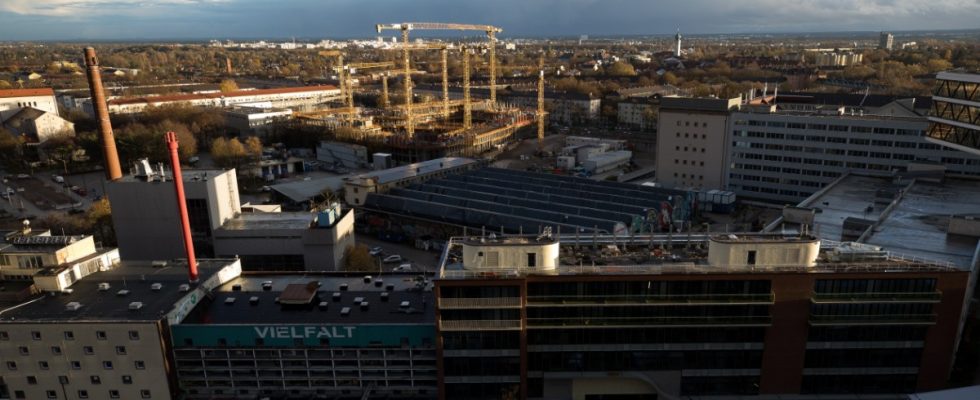There is a lot to do, despite a good overall grade: Munich as a business location is given a grade of 1.8 by local companies, but there is a lot of criticism. This is the result of a survey by the Chamber of Commerce and Industry (IHK) for Munich and Upper Bavaria in March 2023, in which 325 companies took part. A total of 48 factors were rated on a scale from 1 (very good) to 5 (very bad). “Our IHK survey shows where companies – especially the smaller and long-established ones – are particularly struggling,” says Peter Kammerer, deputy general manager of the IHK for Munich and Upper Bavaria. “It provides good indications of where city policymakers need to take a closer look. Location costs, housing supply, business-friendly administration – there is a need for action.”
On the other hand, companies are satisfied with the energy supply (1.9), the connection to the regional road network (1.8), and the range of colleges and universities (1.8). Munich also scores points for the attractiveness of its city center and its cultural offerings (1.9). The city’s image also gets a good grade of 1.8. The companies cite the lack of living space (4.0) and commercial space as well as the high rents (3.7) and trade taxes (3.7) as the location’s greatest weaknesses. Bureaucratic administrative and approval procedures are also criticized (3.7 and 3.5).
“In the last ten years we have lost more than 170 hectares of commercial areas that were converted into residential areas,” says economics officer Clemens Baumgärtner (CSU) on the two main points of criticism. “The pendulum has swung towards housing construction, now it has to go the other way again.” The urban reservoir for allocating commercial space has been exhausted. Anyone looking for suitable land for their factory hall or offices needs to rely on an agent.
But the competition is fierce. While the automotive sector, one of the major pillars of the Munich economy, is stagnating and shrinking in the future, the area of information and communication technology is growing, said Baumgärtner. “Apple is just a striking example of this, but there are many more IT companies that are growing and need high-quality space with a campus feeling – like the Werksviertel.”
To all those who are critical of Apple and economic growth, the economics officer counters: “As the population grows, the demands on urban infrastructure are increasing, from the transport network to daycare. We need money for that. Growth is not about a few Internet giants breaking up They make the community rich at the expense of the municipality. You give them building rights and take taxes.” If everything remained as it is now, companies would migrate and income from trade, sales and income taxes would fall. Then there would be stagnation.
This fear is also reflected in the results of the IHK survey: Almost 35 percent of those surveyed stated that high location costs and a shortage of skilled workers have delayed company growth. The willingness to invest decreased by 5.5 percent compared to the last survey from 2019. A fifth of the companies even state that they have downsized their location in Munich; In 2019, this was only 5.9 percent of companies. The number of people who want to shrink their location in Munich in the future has also increased – from 1.3 to 7.3 percent.
The city cannot influence all location factors. However, commercial space policy is the direct responsibility of the municipality, as are quick administrative and approval procedures. After all, more service quality in the city administration is a done deal. It must now, demands IHK manager Kammerer, “be implemented quickly at all levels in the town hall”. In view of the high financial burden that the economy is suffering due to the global political crises, a sense of proportion should also be maintained when it comes to trade and property taxes.

